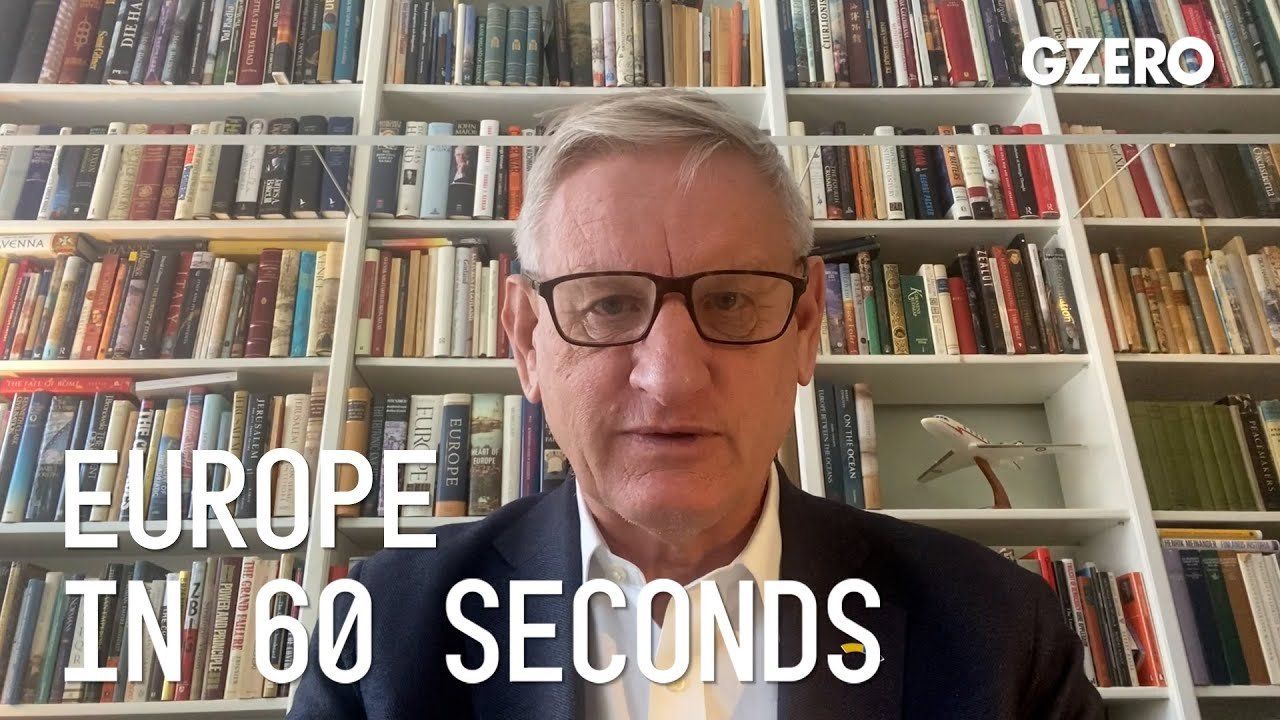GZERO Europe
Swedish NATO bid caught in Erdoğan reelection effort

Sweden's NATO bid hostage in Erdoğan reelection effort | Europe In :60 | GZERO Media

Carl Bildt, former prime minister of Sweden, shares his perspective from Stockholm, Sweden.
How is the process of accession of Finland and Sweden to NATO going?
Well, it's green light for Finland. After ratification by Hungary and Turkey, they've been playing some games, but now green light. Good, excellent. Sweden, they are still holding out. I think President Erdoğan sees this as an asset in his election campaign. There have been some issues with Sweden. I think they have been sorted out, but now it's a question of the politics of Turkey. President Erdoğan, of course, faces an extremely critical election May 14, first round his entire regime's up for grab, and he's holding Sweden hostage in a way that is not entirely good for the security of Europe.
What’s happening in the Mediterranean with refugees?
Well, that's a worrying situation. There have been three times as many refugees, migrants arriving across the Mediterranean to Italy the first few months of this year as last year. There's talk of 900,000 coming this year on planes and trains. There's a very disturbing and difficult situation in Tunisia, both in economic and political terms. Many are coming from Tunisia, but many are coming through Tunisia as well. Clearly it's an unsustainable situation. Can things be done in order to get things better on shape in Turkey? Can there be more solidarity in the European Union helping Italy? These are important question that needs answers.
1,170: The number of high-rise buildings in Kyiv that were left without heating following a barrage of Russian attacks last night on Ukraine’s capital and its energy facilities, per Kyiv Mayor Vitali Klitschko.
U.S. President Donald Trump and Japanese Prime Minister Sanae Takaichi hold up signed documents regarding securing the supply of critical minerals and rare earths, at a bilateral meeting at Akasaka Palace in Tokyo, Japan, October 28, 2025.
Representatives from the European Union, United Kingdom, Japan, and others will meet in Washington this week to discuss a strategic alliance on critical minerals.
80,000: The number of people estimated to be in the streets of Czechia on Sunday to show their support for President Petr Pavel after he blocked the nomination of an environmental minister who performed the Nazi salute and posted Nazi memorabilia.
The US has started handing $1,000 to the bank accounts of newborn babies. But can policies like this one help boost sagging birthrates in advanced democracies?